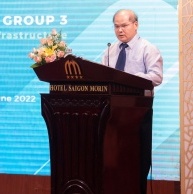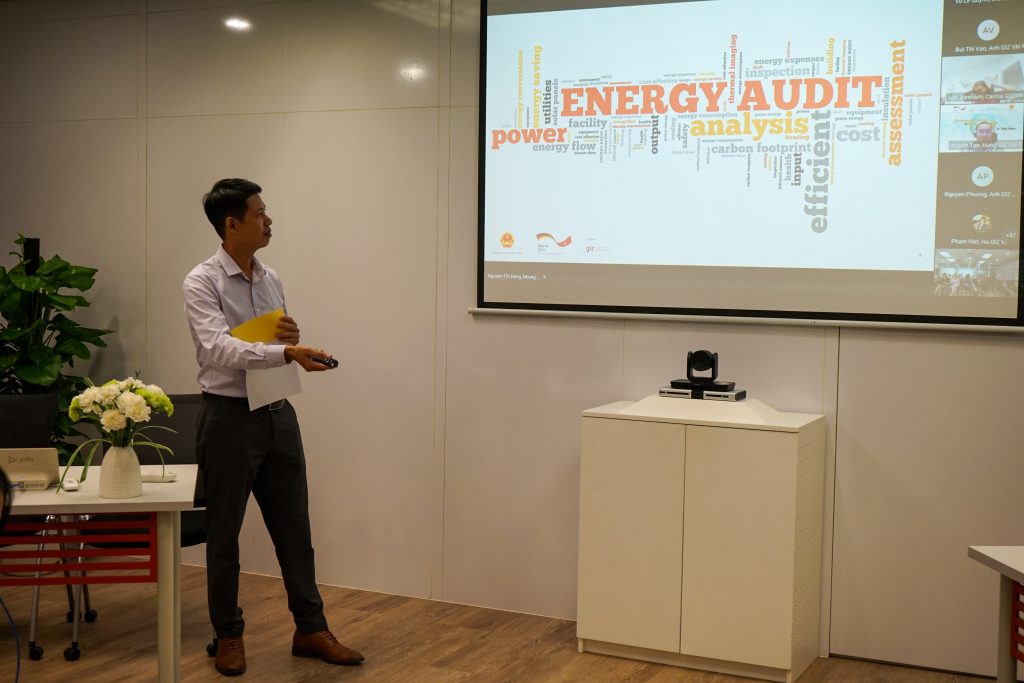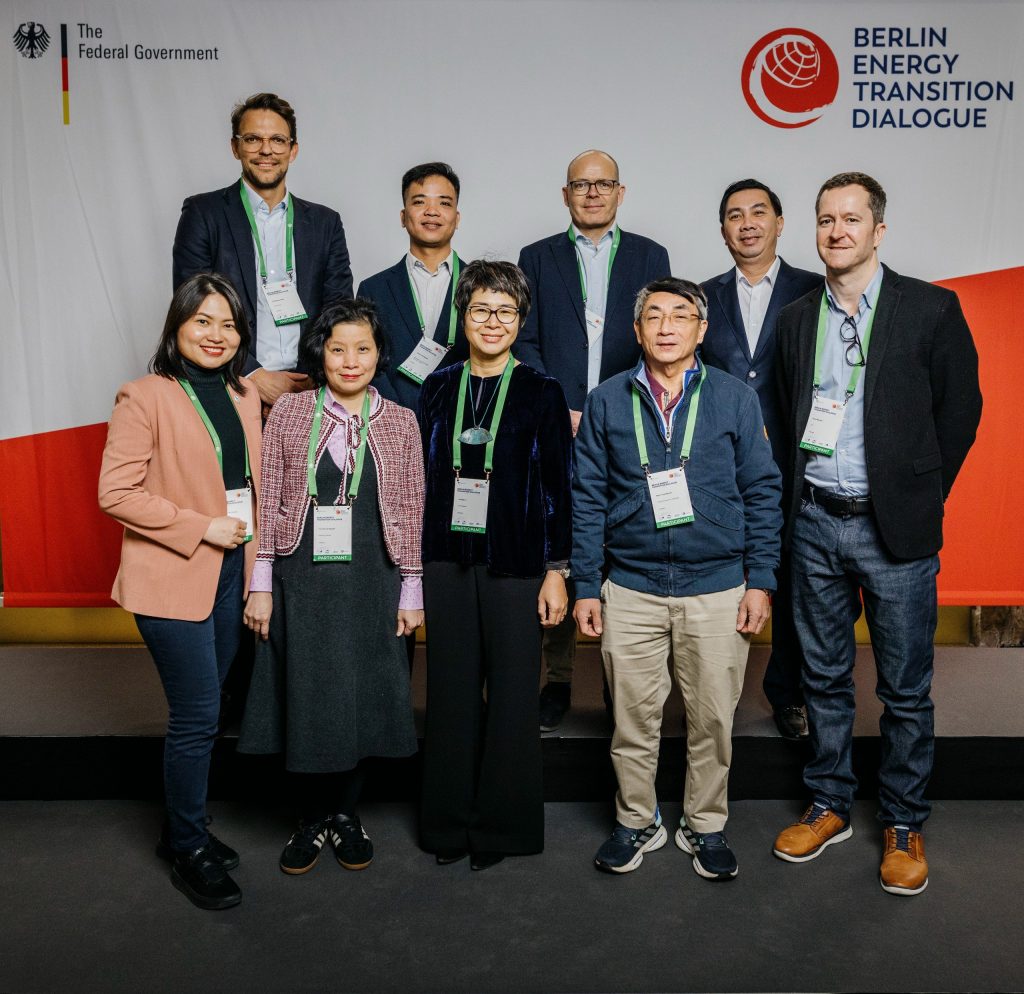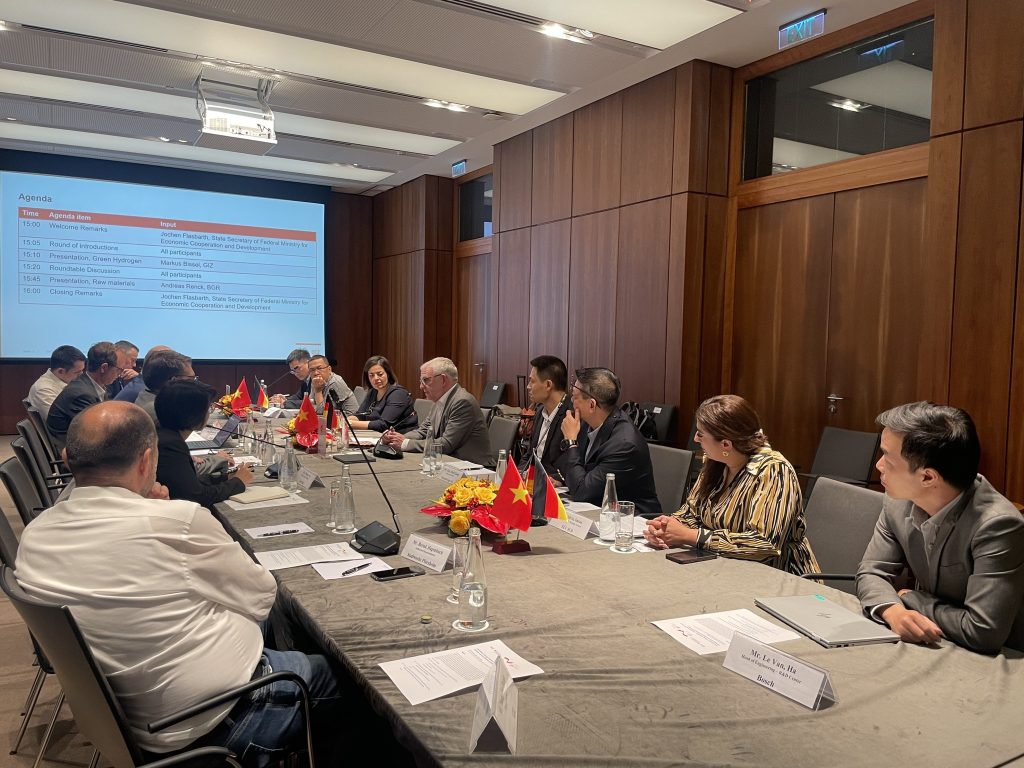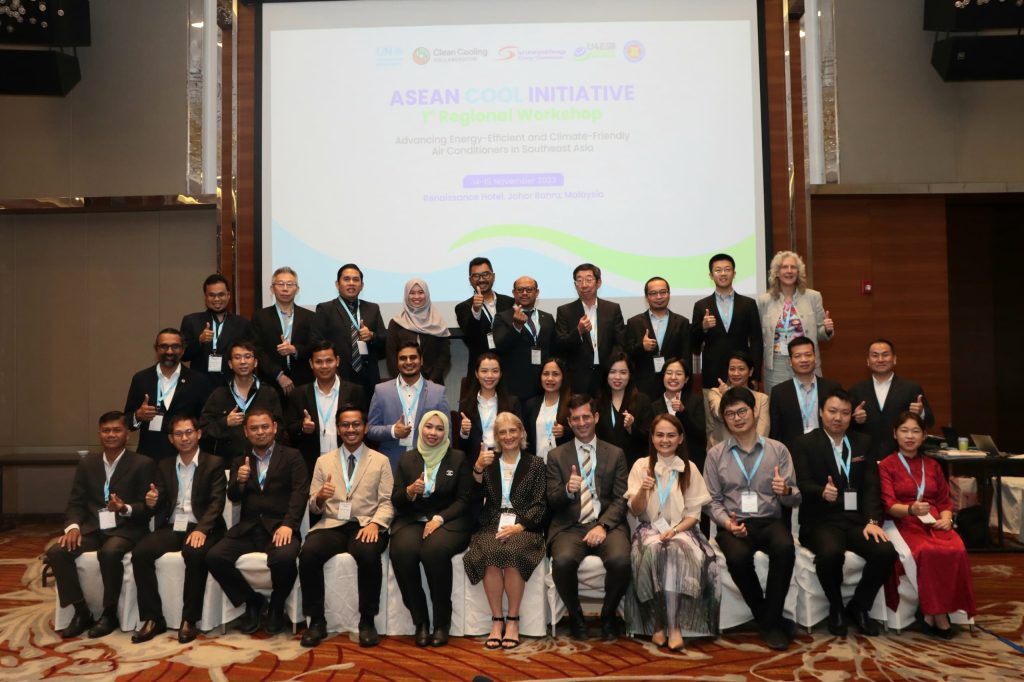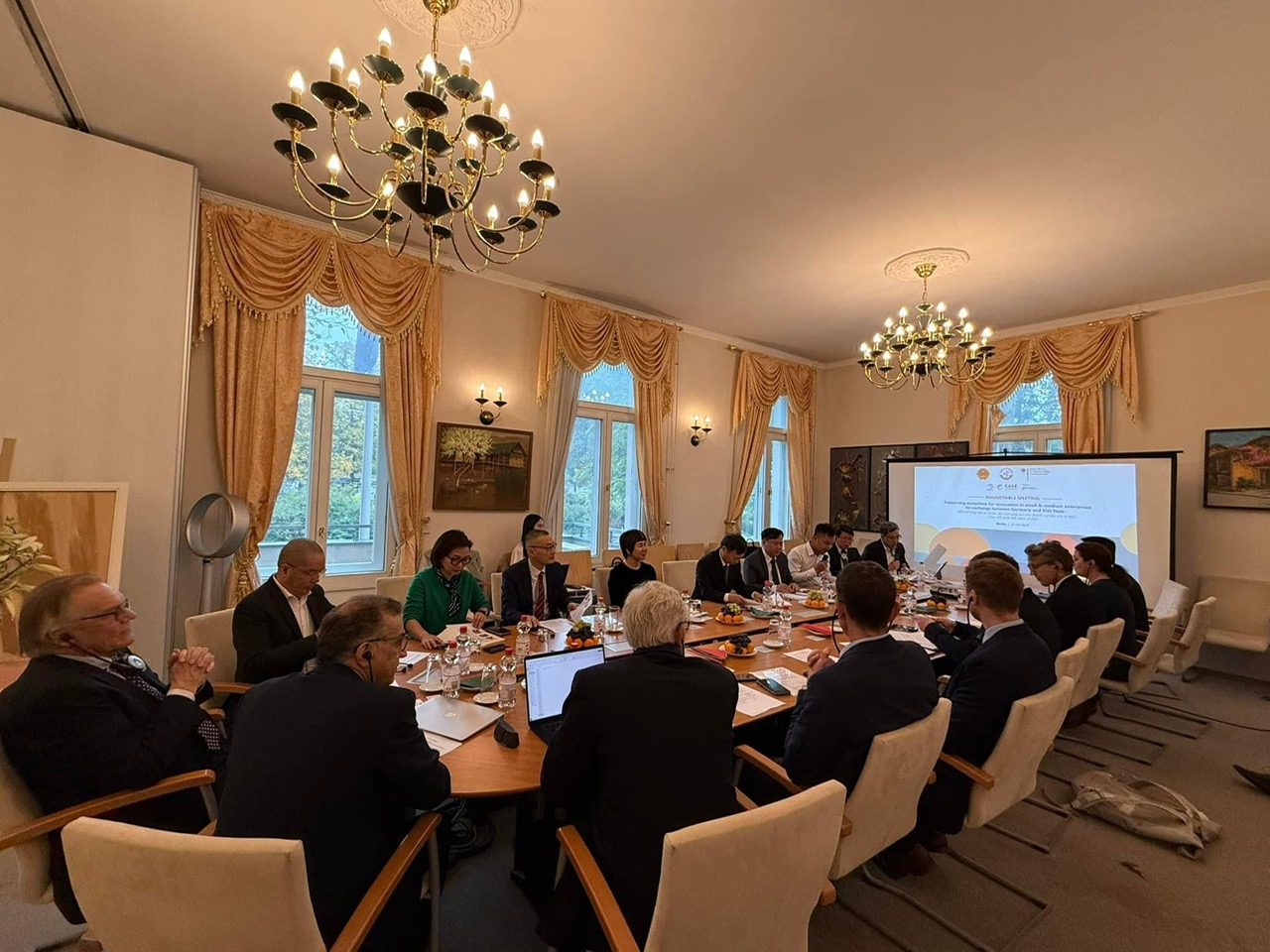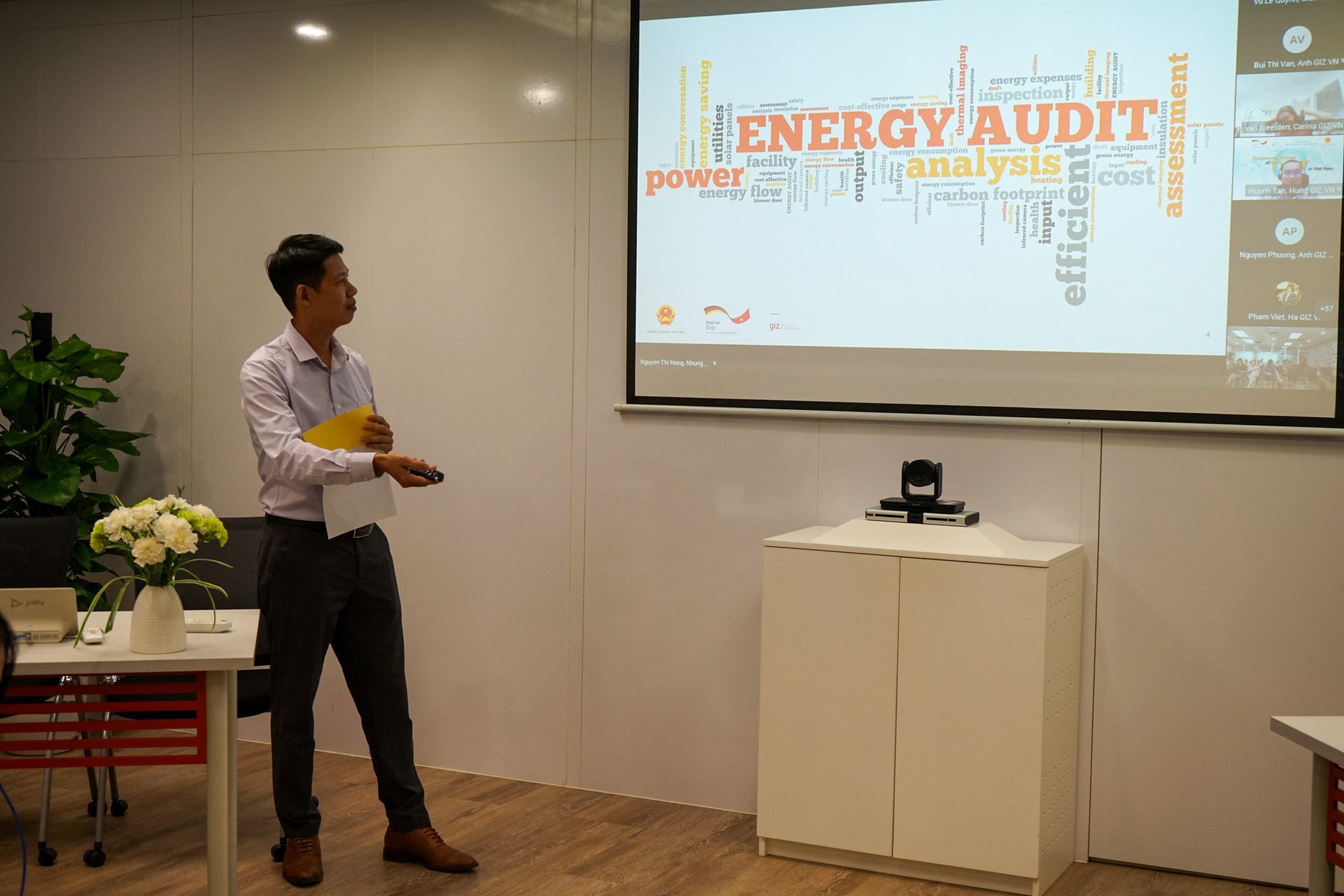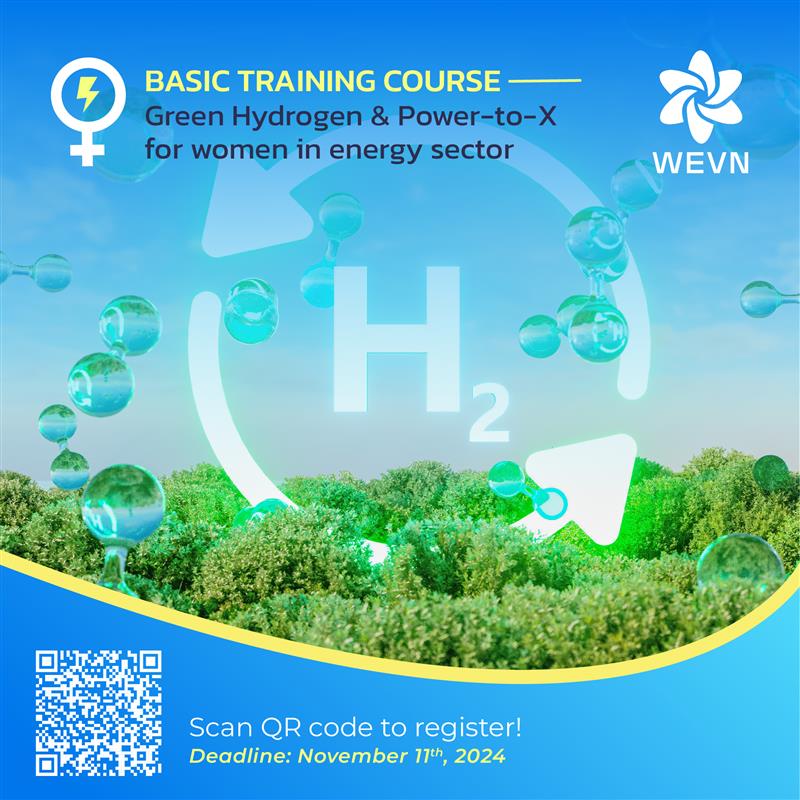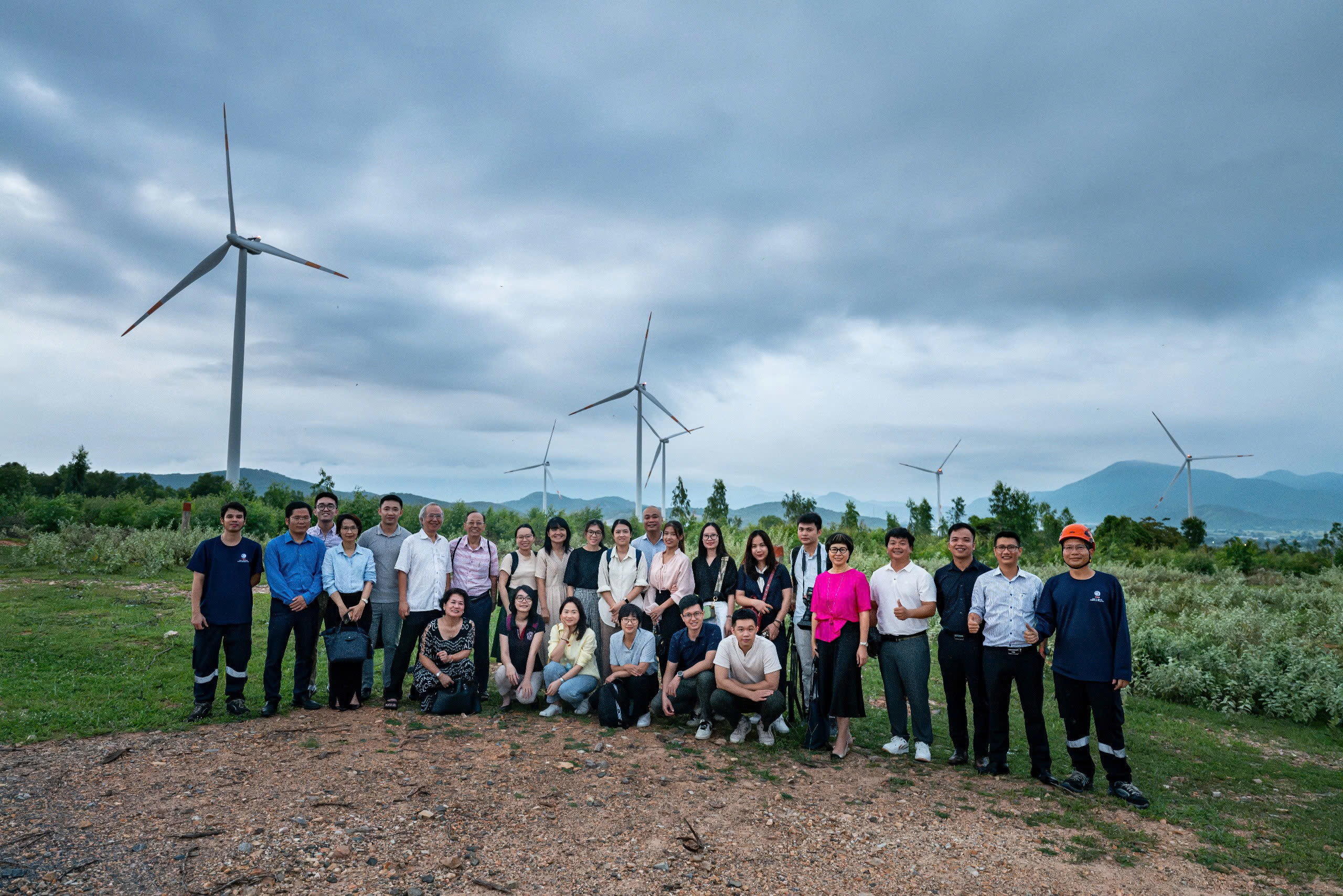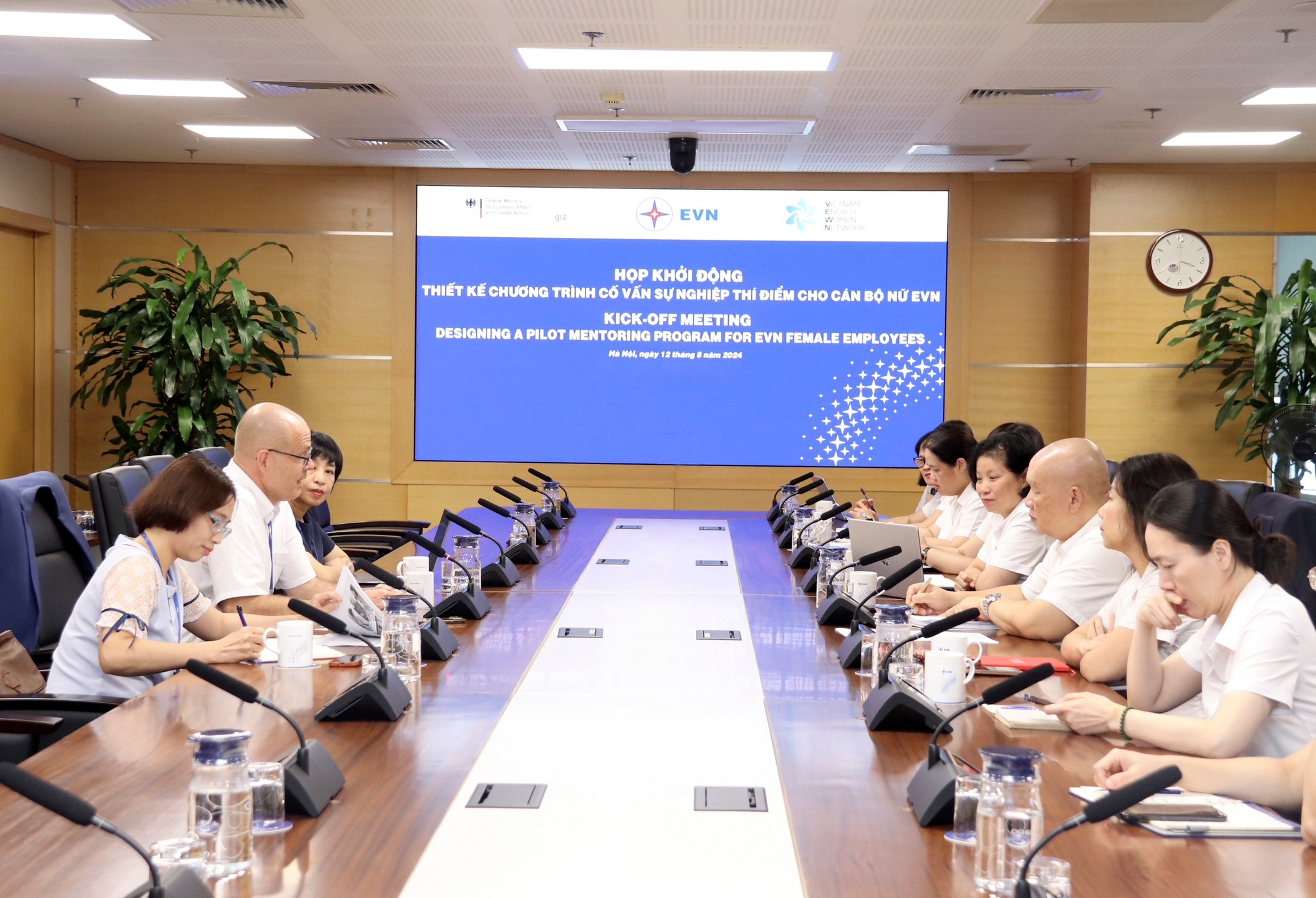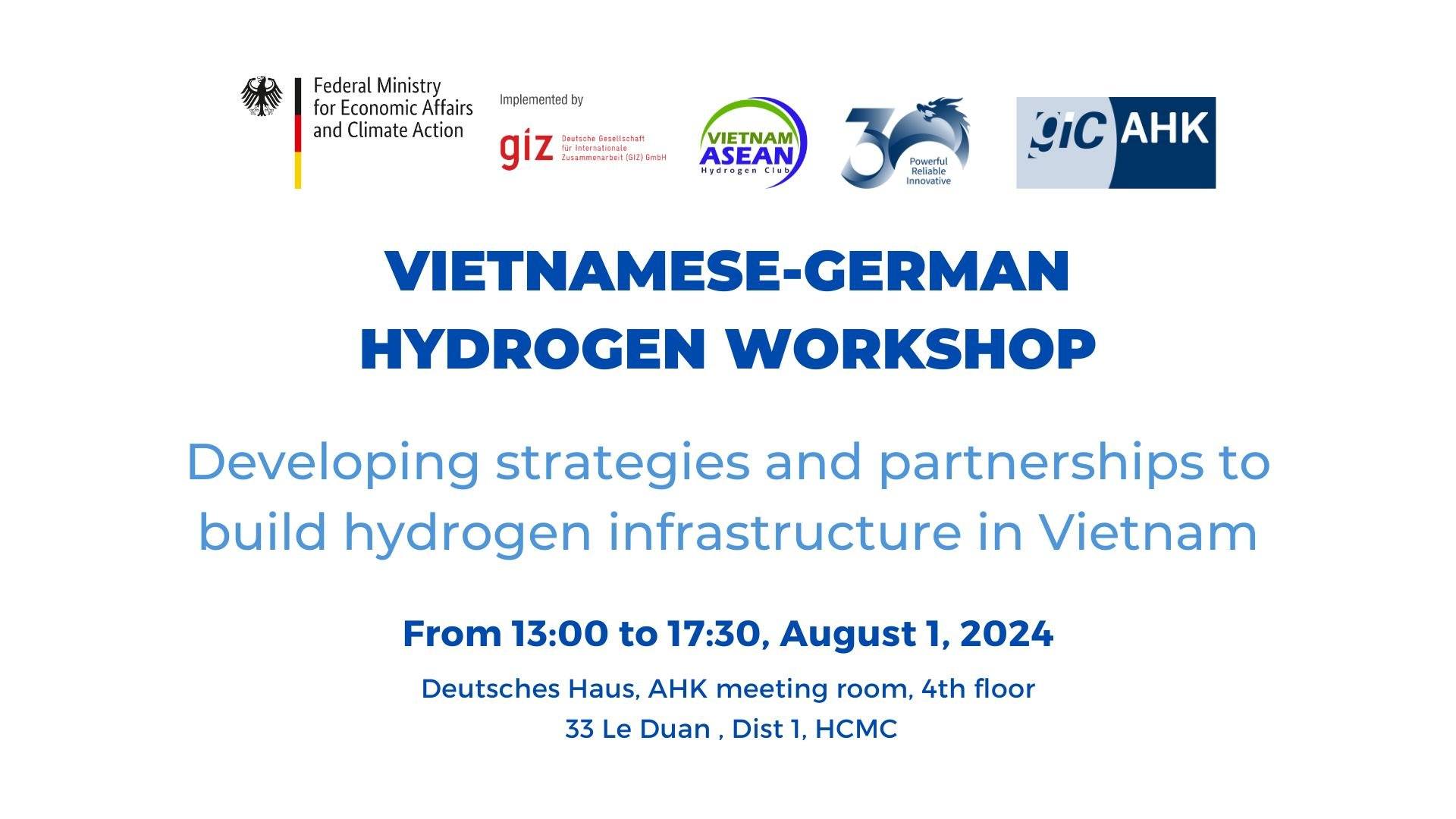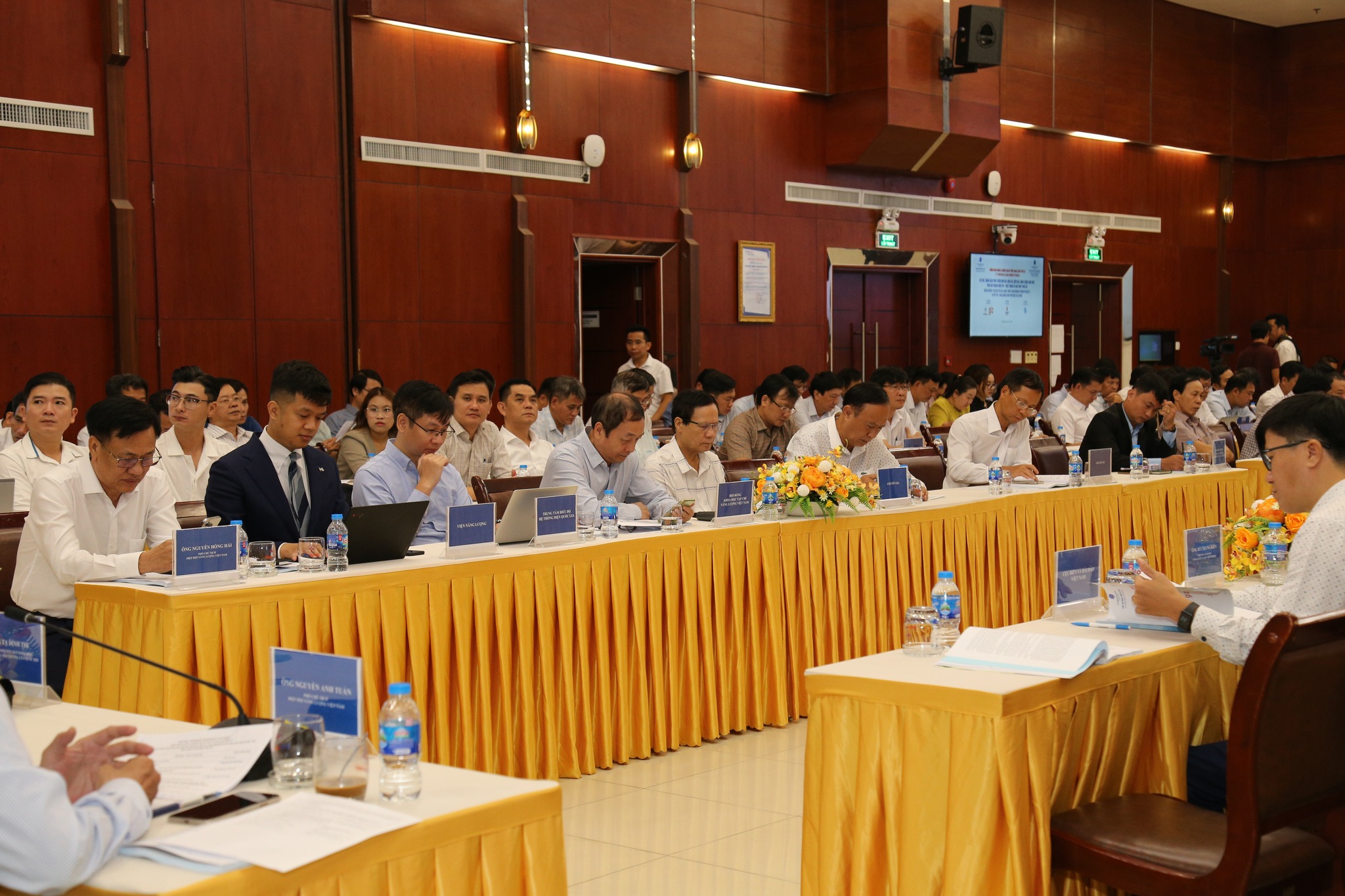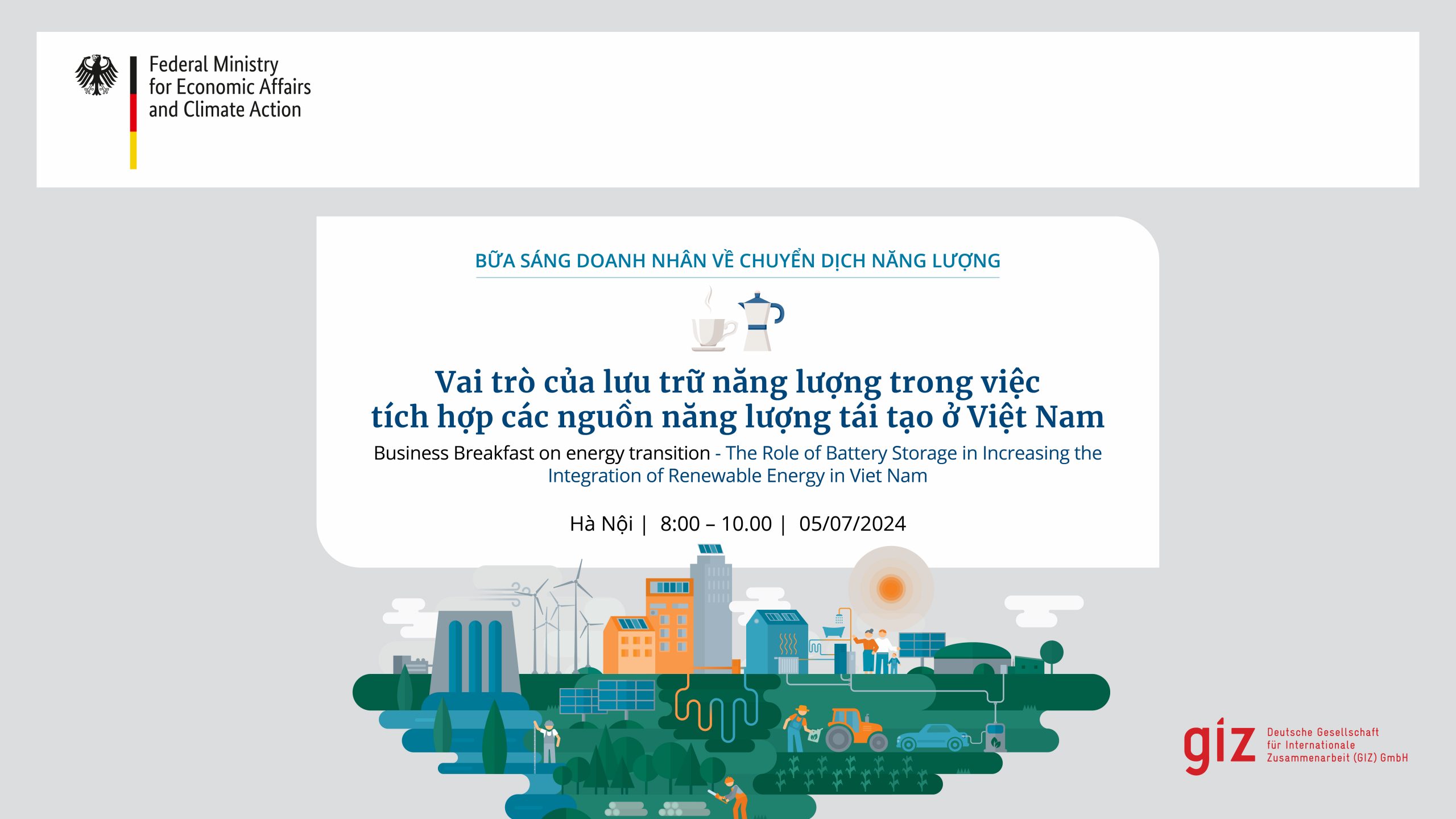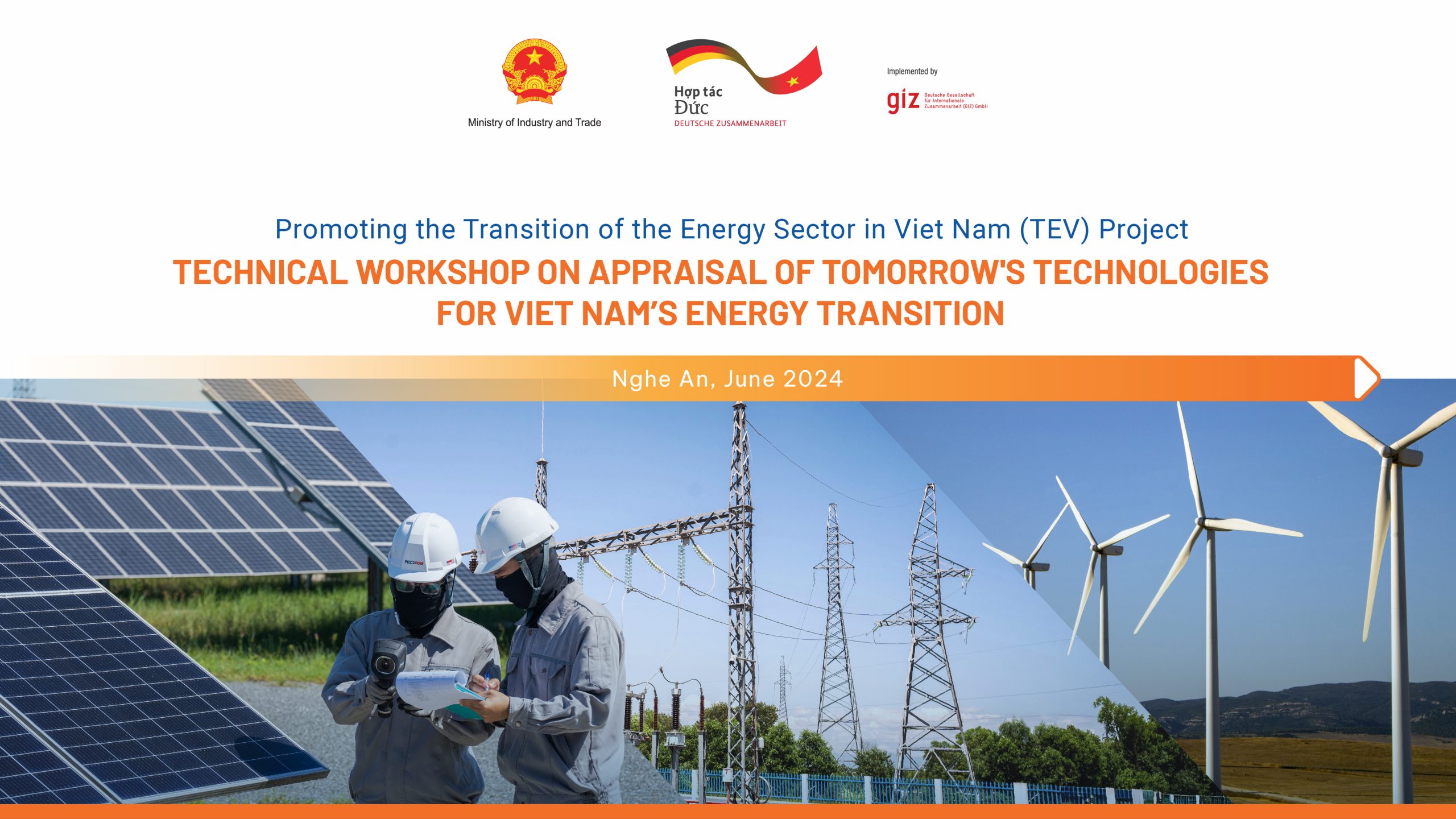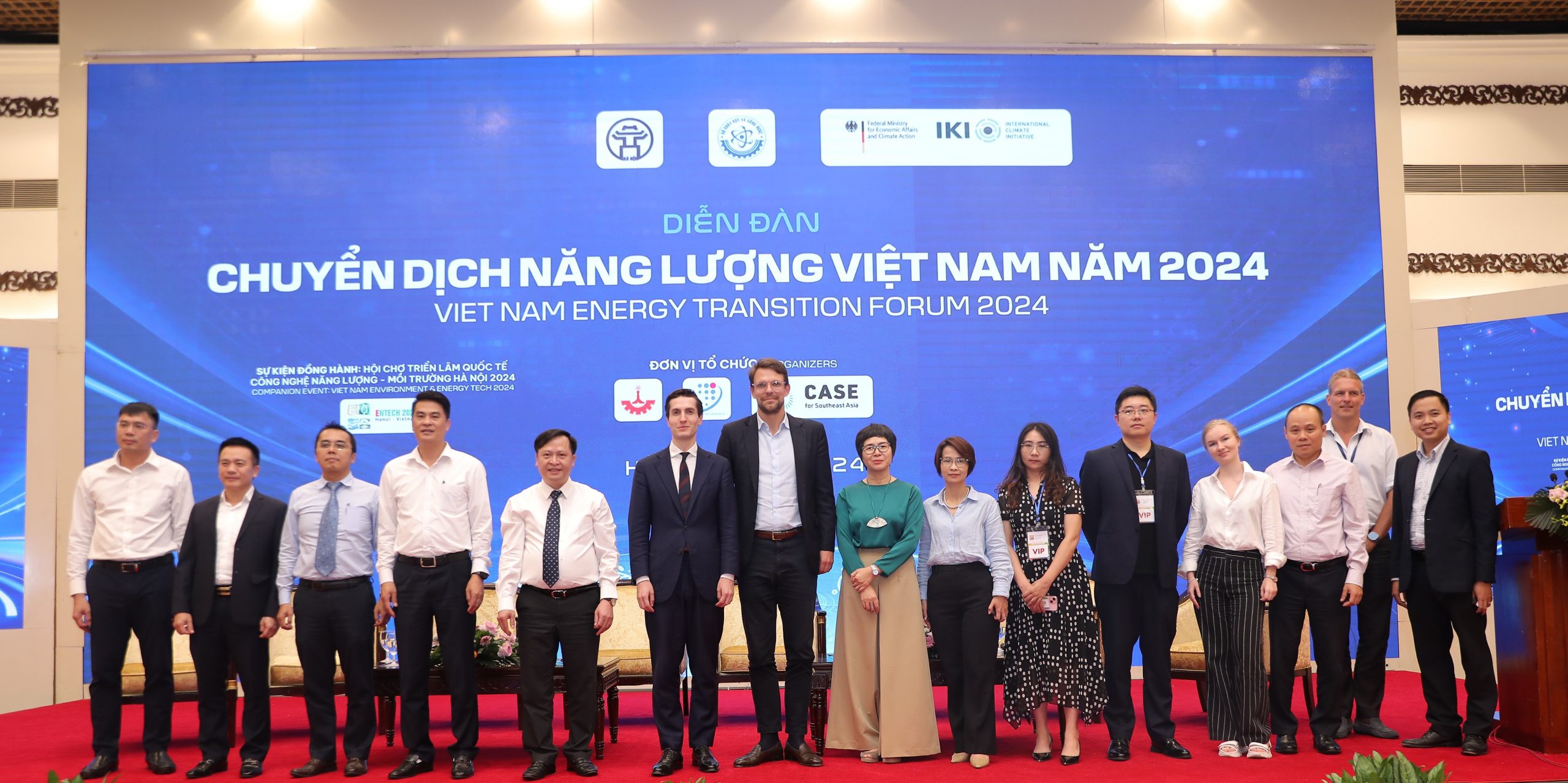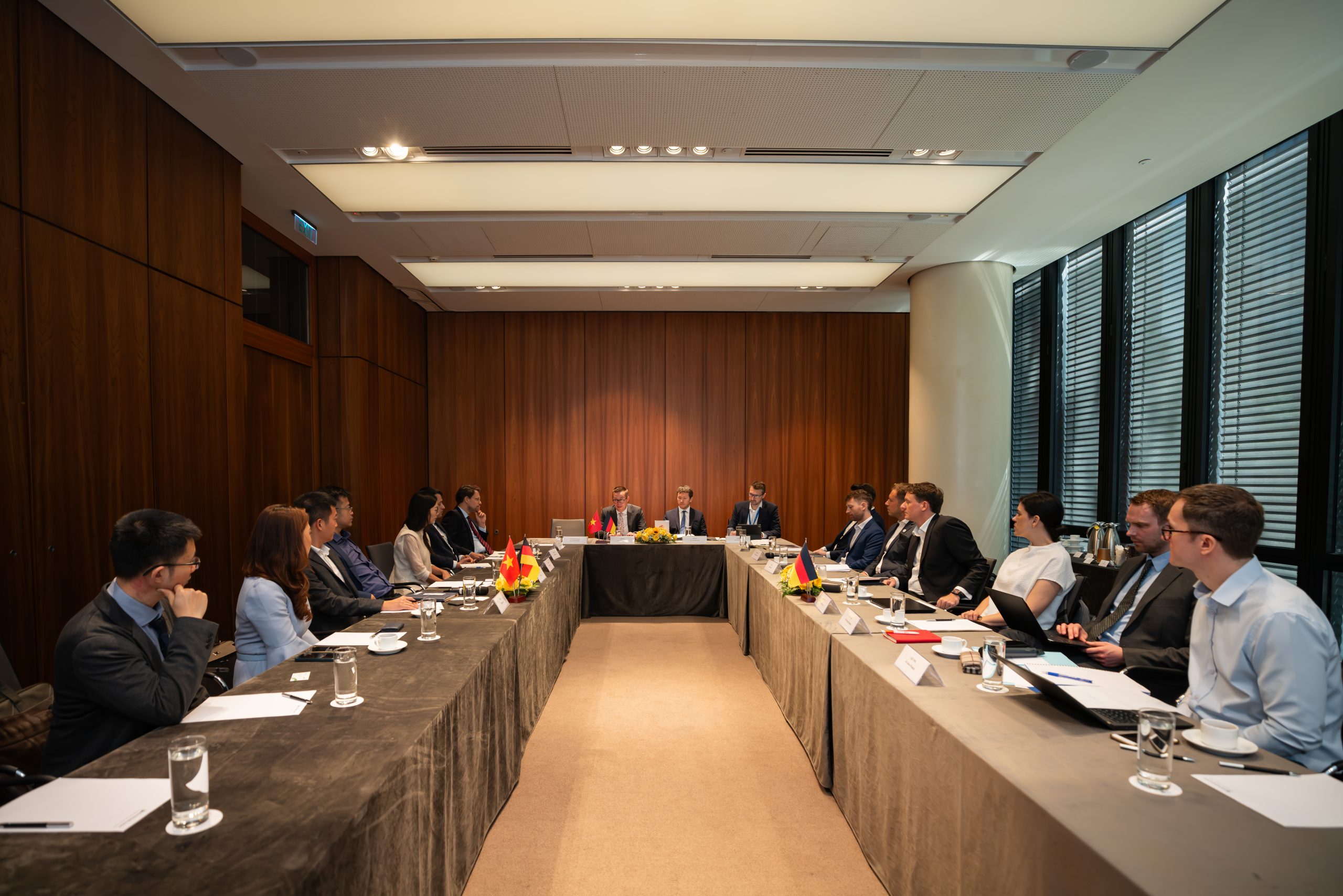Thua Thien Hue, 28 June 2022.
The Technical Working Group (TWG) on Grid Integration and Grid Infrastructure, under Viet Nam Energy Partnership Group (VEPG), had the first meeting of the phase II for two days 27-28 June in Thua Thien Hue Province. The meeting was chaired by Mr. Tran Tue Quang, Deputy Director General of Electricity Regulatory Authority of Viet Nam (ERAV), Ministry of Industry and Trade (MOIT), and H.E Gareth Ward, the Ambassador of the United Kingdom (UK) to Viet Nam. The meeting was attended virtually and in person by nearly 100 delegates who are representatives from the MOIT, local authorities, EVN and Power Corporations under EVN, representatives fromthe UK’s power corporations, international development partners, universities, and domestic and foreign enterprises operating in energy sector as well as related fields.
The meeting was held virtually and in person and discussed on the topics of the grid operation in the context of integrating high share of renewable energy (RE) sources, updating global development trends and international lessons and suggesting potential proposals for the Vietnamese power system. Besides, the participants had a chance to visit Thua Thien Hue Power Company, Phu Bai Substation and Phong Dien 2 Solar Farm, and also listened to the companies’ management board sharing about their experience in operating power system, along with their plan in the upcoming period.
One of the key topics of the meeting was to finalize the workplan of the TWG on Grid Integration and Grid Infrastructure in 2022. This TWG was newly established after the 4th High-Level Meeting of VEPG in 2021, together with the other four TWGs working towards a common goal of ensuring a coherent and effective cooperation between energy sector stakeholders to shape Viet Nam’s energy transition. This mission is becoming more critical as Viet Nam is making efforts to realize the commitment of net-zero carbon emissions by 2050 as declared by the Prime Minister at the COP26.
At the event, the Secretariat of VEPG has updated the changes in terms of reference of the VEPG after 2021, listened to the sharing from related parties to identify the priority topics for the TWG in the new phase. After discussion, the working group agreed on the focus topics of the TWG on Grid Integration and Grid Infrastructure including (1) Integration of variable renewable energy sources; (2) Smart grid, grid code; (3) Energy storage system; (4) Distributed electricity generation model.

As part of discussion, the representative from ERAV shared the overview on the Viet Nam power system. The total installed capacity of the Viet Nam Power System is 78,682 MW, of which coal-fired power and hydro power account for the highest proportion (32.28% and 22.23% respectively), followed by solar and rooftop solar power with 11.28% and 9.86% respectively. To develop and transform to a grid system with high share of RE, it is necessary to consider issues related to grid overload and capacity loss during transmission, mobilisation principles in case of surplus sources, RE forecast, as well as a mechanism for battery energy storage system (BESS) development to support RE integration.
The representative from the Central Power Corporation (EVNCPC) also shared with the delegates a more comprehensive view with practical experience and the organisation’s initial results in developing smart grid with integrated RE sources. With the objective of modernizing metering system for power trading, EVNCPC has completed installing 4.41 million electronic meters in their system, which enables successful rate of data collection to reach up to 99.3%. In order to integrate RE and new energy sources into the distribution power system, EVNCPC studied and implemented a solar plant in Khanh Hoa province with the installed capacity of 50MW, which was put into operation in 2019. In additions, EVNCPC also installed rooftop solar systems at the headquarter and some of its subsidiaries.
In the coming years, EVNCPC set out a strategic plan to support the development of the integrated power grid with high share of RE considering a number of aspects, including managing and monitoring customer information, managing and controlling distributed energy resources (DERs), together with forecasting work for rooftop solar power.
Besides, the technical working group listened to experiences on operating and developing zero carbon grid from international partners, especially from UK National Grid Company (NGC). During the period of 2010 to 2019, the proportion of electricity from RE sources in UK grid system increased from 7% to 37%, while the proportion of coal decreased from 28% to 2%.
With more than 10 years of pursuing carbon emission reduction for the power system, NGC also shared that the commitment to net zero goal help the objectives for power industry become clearer. NGC also emphasized that the flexibility for shifting demand and generating electricity when needed to keep the system balanced is crucial for successfully developing and operating smart grid with integrated RE. The solutions for improving flexibility include developing interconnectors, negotiating for adjusting customer’s demand to increase flexibility from customer side, or investing on development of electricity storage system.
Speaking at the meeting, H.E Gareth Ward, the Ambassador of the United Kingdom (UK) to Viet Nam shared: “Energy sector reform is particularly important for net zero, given it accounts for about 70% of total GHG emissions in Vietnam. The Vietnamese government will also need to revitalise its approach to public investment to enable access to finance for significant green finance. Building on the success of COP26, we look forward to continuing to work with Viet Nam and support the implementation of Viet Nam’s new climate commitments and its energy transition, drawing on international climate finance.”
The Technical Working Group (TWG) on Renewable Energy is under the Viet Nam Energy Partnership Group (VEPG) which was established in 2017 as a high-level policy dialogue forum between the Government of Viet Nam and international partners connecting international support to promote the development of renewable energy market in Viet Nam. Up to now, this TWG has conducted 6 meetings and panel discussions regarding mechanisms and policies to encourage the development of renewable energy, especially for solar power in Viet Nam. 12 policy recommendations was proposed by this TWG out of a total of 40 policy recommendations of the VEPG.
In 2021, VEPG has restructured its TWGs, identified key topics tailored to the nation’s urgent needs as well as leveraged domestic and international supporting resources. Two TWGs remained in place are Renewable Energy and Energy Efficiency, three newly formed TWGs are Power sector Strategic planning, Grid integration and Grid infrastructure and Energy Market.



